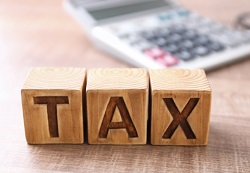As with any new business, starting a small farming business can be a daunting task. The fact that there are different taxation rules that apply specifically to small businesses in the agricultural sector can complicate matters even more.
The Australian Tax Office (ATO) website contains a plethora of information relating to hobby farm business structures, possible tax deductions and options for claiming losses, but we have condensed the most important information in this article.

While anyone considering starting a small farm is advised to seek professional advice from a qualified tax adviser, below are some important points for you to consider.
Like most start-up businesses, getting the correct structure in place can be critical to the success of your business. With an agricultural business such as a hobby farm, you need to consider the additional tax measures that allow an individual to claim business losses against their other income without the need to earn $20,000 in business revenue.
Small farm tax deductions for sole traders and partnerships
The simplest structures are operating your small farm either as a sole trader or in a partnership. Because of their straightforward operation and uncomplicated tax compliance work, these business structures are generally the least expensive to set up and run.
With these entities, the ATO allows individuals to claim losses against their other (off-farm) income if the losses pass the non-commercial business loss measures.
According to the ATO, you may claim primary production losses immediately against other income if you meet both of the following conditions:
• you are a sole trader or a partner in a partnership; AND
• your assessable income from other sources is less than $40,000, excluding any net capital gain.
This is an exception to the non-commercial business loss measures, which generally don't allow businesses to claim deductions for losses incurred in activities that are not commercially successful.
Under the general non-commercial business loss measures, you may also be able to claim your losses immediately if both:
• the sum of your taxable income, reportable fringe benefits, reportable superannuation contributions and total net investment losses is less than $250,000; AND
• your business activity satisfies 1 of the following 4 tests:
1. your business produced assessable income of at least $20,000; OR
2. your business has produced a profit in 3 of the past 5 years (including the current year); OR
3. your business uses real property or an interest in real property (any land either owned, leased or agisted) worth at least $500,000 on a continuing basis; OR
4. your business uses other assets worth at least $100,000 on a continuing basis.
Setting up your small farm as a company or trust
Other common business structures used for small farms are companies and trusts.
With these entities, however, the ATO doesn’t allow you to claim any of the farm losses against your other personal or off-farm income. Any losses remain within the separate entities and are deferred or carried forward to later tax years, with the losses offsetting any profits earned in those years.
Generally speaking, setting up a farm as a company or trust is more suitable for larger or full-time businesses, because these entities:
• are more expensive to set up
• are more complex in their operation
• have ongoing yearly costs, and
• can incur higher compliance costs.
The compliance work involved in operating a company or trust include income tax, business activity statements for goods and services tax and fuel tax credits.
There are, however, reasons you might decide to set up your hobby farm using one of these business structures, other than purely for taxation purposes. To find out more about these options, talk to your accountant.
Ask your accountant or tax adviser what’s right for you
Because each small farming business and every individual’s position is different, you will require the advice of your tax adviser or accountant to determine your particular needs. They will need to understand all of your financial and taxation needs before they are able to give you correct advice on the best structure you should use in your agricultural endeavours.
About the author
Allan Jarrett is one of FarmStyle Australia's experts and has worked as a taxation accountant and business adviser for the past 12 years. With a lifetime of practical experience in agriculture, Allan has owned and operated a number of enterprises including dairy, beef and cropping farms in the Northern Rivers of New South Wales. He has always had a passion for breeding high quality livestock, with his family currently operating a growing Simmental beef stud.



